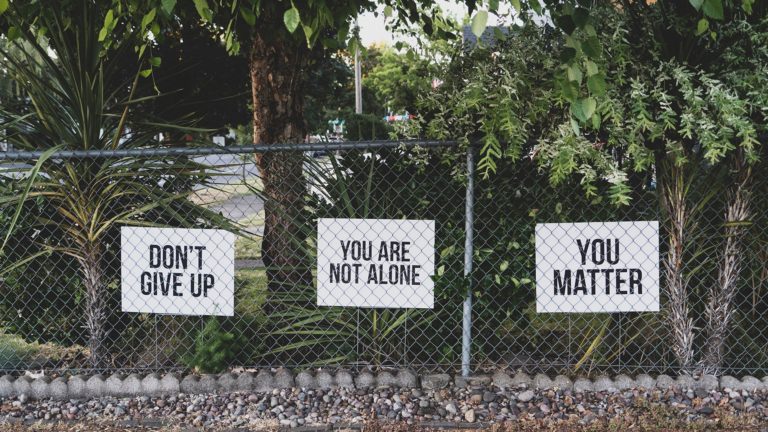Want to break your worry habit? Is it even possible with everything that’s going on in the world? It might not feel it, but this is possible. I know because I was a chronic worrier, I was anxious all the time, so much so that my hair started to fall out.
I’d worry about what I had said and how I said it, worry about what I thought other people were thinking, and worry about what I thought might happen or might not happen. I couldn’t enjoy the present because I was worrying or anxious about the past and the future. I even made-up things to worry about!
The physical impacts of worry
It wasn’t until some years later that I realised that not only was this worry harming me physically and mentally. The constant state of stress and anxiety was preventing me from dealing with the sources of stress and anxiety, all because I was not living in the present. It was a distraction – one that kept me busy being busy, rather than focusing on how I can go about making the necessary changes with a clear and focused mind.
Well, Sarah, that’s all well and good, but how did you stop worrying I hear you ask!
Spoiler alert – I didn’t! We will always have things to worry about. What I did helped ease the worry and helped clear my mind. I became more focused on things that would be helpful to me, as opposed to worrying which although it felt productive, was not productive in any kind of way! Well, now I am going to contradict myself here – it can sometimes be helpful in some situations. Let’s explore more…
When worry can be helpful
Whether you agree or disagree, over the many years we have evolved as humans. Where we needed certain quick and automatic responses to help us fight a predator or run away from danger. Some of these responses that help prepare our bodies for stressful situations are not so helpful to us anymore.
We might have needed to be on high alert, look out for and spot all the danger in our environment before and worry if a predator was around the corner – but we need to do this less so now. However, there will be times when our worry about our environment or the consideration we give to ‘what might go wrong’ can still serve us.
Think about if we never feared consequences, or never planned for situations where events might take a turn to how we expected – these are the times when worrying might be helpful.
When worry is not helpful
When worry is not very helpful is when it takes over our life. To the point where we can’t enjoy the moment and it takes away every ounce of happiness from the experience and we look back and regret not being fully present or enjoying our time.
Imagine worrying so much over your lifetime, that you get to the end and regret not fully being able to let go and enjoy yourself. There are some wonderful poems and stories out there of people doing just this – how frustrating as sad must that be. To spend your whole life worrying and feeling regret when it’s too late.
Well, I am here to tell you it doesn’t need to be like that.
How did I ease the worrying? Here are some hints and tips on how I used mindfulness and other techniques to do this:
Techniques to break your worry habit
I have explored many different techniques and practices both personally and with my clients. Everyone is different and there will be some techniques that resonate with you more than others. Here are my top three:
1. Allocate worry time
Instead of letting worry take over your whole day, why not set aside 30 minutes of worry time? You can save all your worries until this allocated time and then only worry then. You will often find that by this time the worry is less important, you might have forgotten what you were worrying about, or you simply decide to let the worry go.
2. In and out of your control
Try to break the worry down into two columns on a piece of paper. Under the heading ‘in control’ write down all the aspects of your worry that you are in control of e.g. are you worried about what you think someone thought of you during a meeting? You might not feel in control of this, but if you break it down you are in control of asking the person how you came across during the meeting.
In the next column under the heading ‘out of control’ write down all the aspects of your worry that you might feel out of control e.g. we cannot control other people’s behaviour – however, when you really break it down, there is still a lot we can control e.g. we can set boundaries, we can learn to say no in a way that feels right for us, we can choose to change our environment or job and not be part of those behaviours, that culture.
When we see more of what worries us being inside our control, we worry less and feel less anxious and stressed.
3. Notice your worry
We can use our mindfulness practice to simply notice those feelings and thoughts of worry and choose to acknowledge and accept them or let them go.
Mindfulness has been such a game-changer for me in terms of reducing the actual worry but also reducing the amount of worry and the impact on me and those around me.
Worry and children
So, when we think about how these techniques might help us as adults and all the worries we have. Imagine the benefits as a child, learning to break the worry habit from a young age.
When I think about all the worries that I and my children have experienced at a young age such as friendship dynamics, starting a new school, moving house, and transitioning to a new teacher – the list is endless!
Imagine being able to worry less and how freeing this would be. It would free us up to live and enjoy the now. To be present and be able to think clearly and make better decisions.
What could help you worry less today? Have you ever tried some of these techniques to break your worry habit? Or do you have your own techniques that work for you?
Wishing you a wonderful day,
Sarah x
A bit about the author…
Sarah Makinde is a Business Psychologist, Mindfulness Teacher and Cognitive Behavioural Hypnotherapist. She has over 20 years of experience in the corporate environment and after going through her own journey with stress, anxiety and overwhelm, is passionate about helping her clients with similar issues.





